Looking for ways to celebrate the solar eclipse with kids? Check out these cool solar eclipse events in metro Detroit!
The total solar eclipse on April 8 won’t just be a wondrous astronomical event—it’s projected to be one of the biggest drivers of travel in the United States this year.
The Great American Eclipse expects between 1 and 4 million people to travel to see the eclipse; that doesn’t include the 31 million Americans who live in the path of totality, the 115-mile-wide stretch where you’ll be able to see the eclipse in full, spanning from Mexico to Maine. “It will likely be the most-viewed astronomical event in American history,” Michael Zeiler, eclipse cartographer and co-founder of Great American Eclipse, said in a statement.
Part of what’s driving the popularity of eclipse travel this year is its timing—the busiest week for spring break travel happens to be the week the eclipse will occur. Others who aren’t on school schedules may be watching the eclipse due to scarcity; according to NASA, the next total solar eclipse visible in the contiguous United States won’t occur until August 2044.
Many people plan a trip to visit family and friends who live in the path of totality. Travelers who aren’t seeing loved ones are expected to visit an area in the path of totality that’s closest to their home, according to the Great American Eclipse. Texas alone expects a million additional visitors to witness the rare event.
If you plan to travel for the total eclipse, prepare to fly into and out of busy airports. Once you’ve reached your destination, look for nearby eclipse events. Many cities are planning eclipse block parties, astronomy lectures, and more. Airlines like Delta and Southwest are even planning special eclipse flights. Finally, make sure you have eye protection to view the eclipse safely. It’s unsafe to do so through lenses like cameras, so finding proper eyewear ahead of time is a must.
Stacker used data from the North Carolina Institute for Climate Science to identify 25 places across the U.S. in the path of totality during the 2024 total solar eclipse.
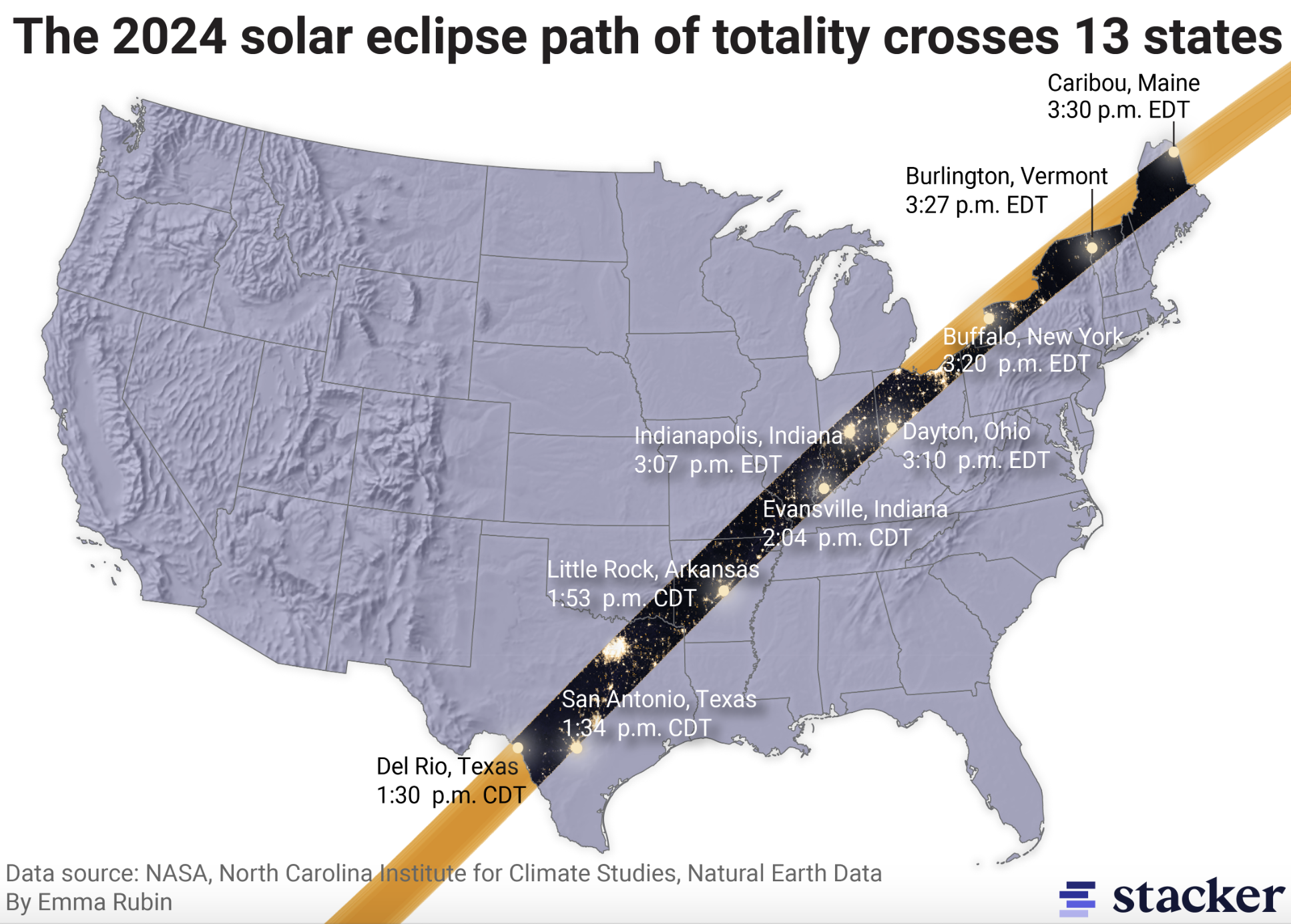
Mapping the path of totality across the US
This article predominantly highlights cities with available weather data, but the path of totality expands beyond that scope.
Smaller towns near areas on this list or elsewhere on the path of totality can also be an ideal place to view this rare event. Because this article relies on available weather station data, it does not include all the states that the eclipse’s path dots: Texas, Arkansas, Oklahoma, Missouri, Illinois, Indiana, Kentucky, Ohio, Pennsylvania, New York, Vermont, New Hampshire, and Maine. According to NASA, portions of Tennessee and Michigan will also be able to see the total solar eclipse.
Read on to find out where—and when—you should be able to see the total eclipse on April 8.
Waco, Texas
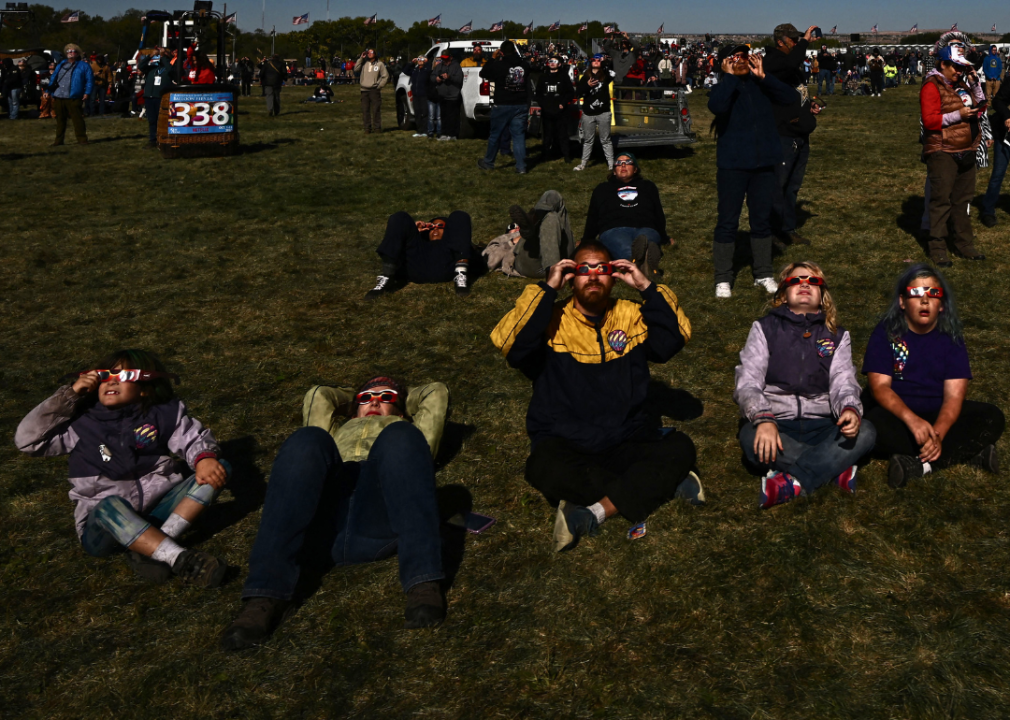
– Time of peak totality: 1:40 p.m. CDT
– Length of totality: 4 minutes, 19 seconds
– Chance of viewability: 63.9%
– Historic cloud conditions:
— Clear 49.8% of the time
— Few clouds 7.7%
— Partly cloudy 6.2%
— Mostly cloudy 10.6%
— Overcast 25.8%
Cleveland

– Time of peak totality: 3:15 p.m. EDT
– Length of totality: 3 minutes, 49 seconds
– Chance of viewability: 38.9%
– Historic cloud conditions:
— Clear 12.1% of the time
— Few clouds 11.6%
— Partly cloudy 13%
— Mostly cloudy 20.3%
— Overcast 43%
Indianapolis
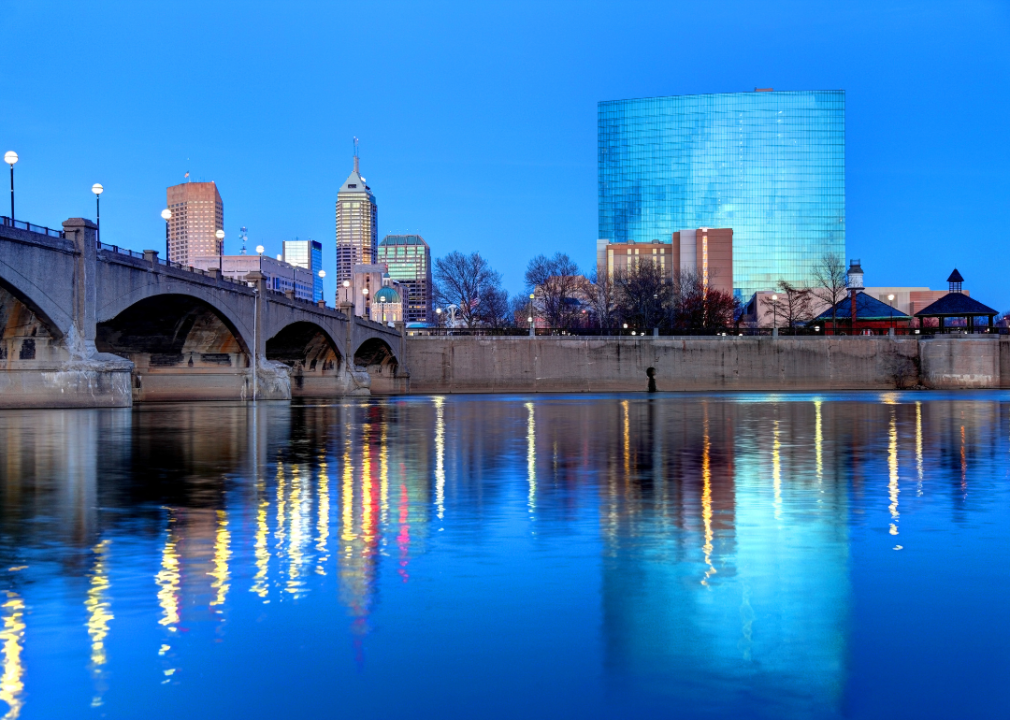
– Time of peak totality: 3:07 p.m. EDT
– Length of totality: 3 minutes, 48 seconds
– Chance of viewability: 37.2%
– Historic cloud conditions:
— Clear 9.1% of the time
— Few clouds 13.3%
— Partly cloudy 11.2%
— Mostly cloudy 23%
— Overcast 43.4%
Findlay, Ohio
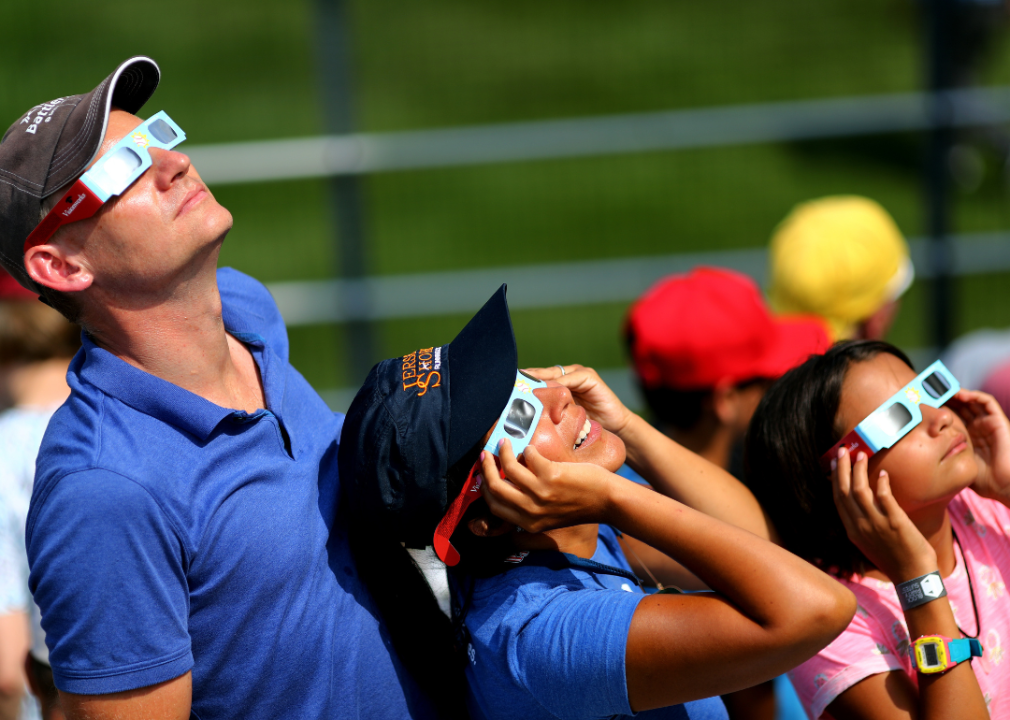
– Time of peak totality: 3:12 p.m. EDT
– Length of totality: 3 minutes, 45 seconds
– Chance of viewability: 54.2%
– Historic cloud conditions:
— Clear 36.9% of the time
— Few clouds 10.2%
— Partly cloudy 5%
— Mostly cloudy 13.6%
— Overcast 34.3%
Buffalo, New York
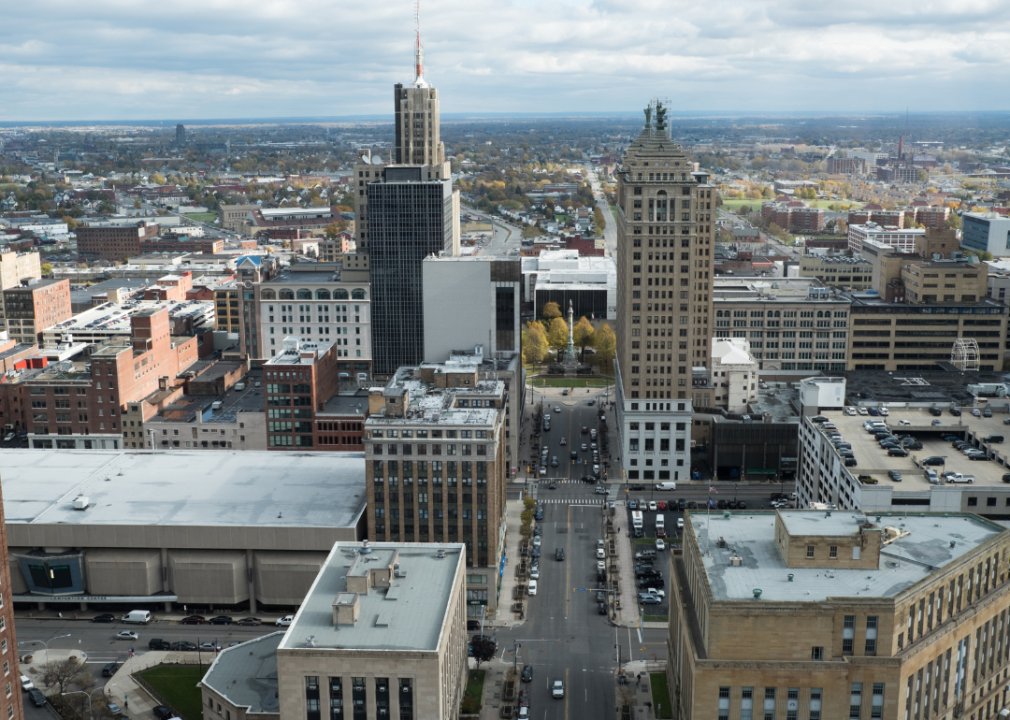
– Time of peak totality: 3:20 p.m. EDT
– Length of totality: 3 minutes, 44 seconds
– Chance of viewability: 35.9%
– Historic cloud conditions:
— Clear 7% of the time
— Few clouds 13.9%
— Partly cloudy 11.7%
— Mostly cloudy 22.4%
— Overcast 45%
Erie, Pennsylvania

– Time of peak totality: 3:18 p.m. EDT
– Length of totality: 3 minutes, 42 seconds
– Chance of viewability: 56.2%
– Historic cloud conditions:
— Clear 43.5% of the time
— Few clouds 6.7%
— Partly cloudy 4.5%
— Mostly cloudy 9.1%
— Overcast 36.1%
Rochester, New York
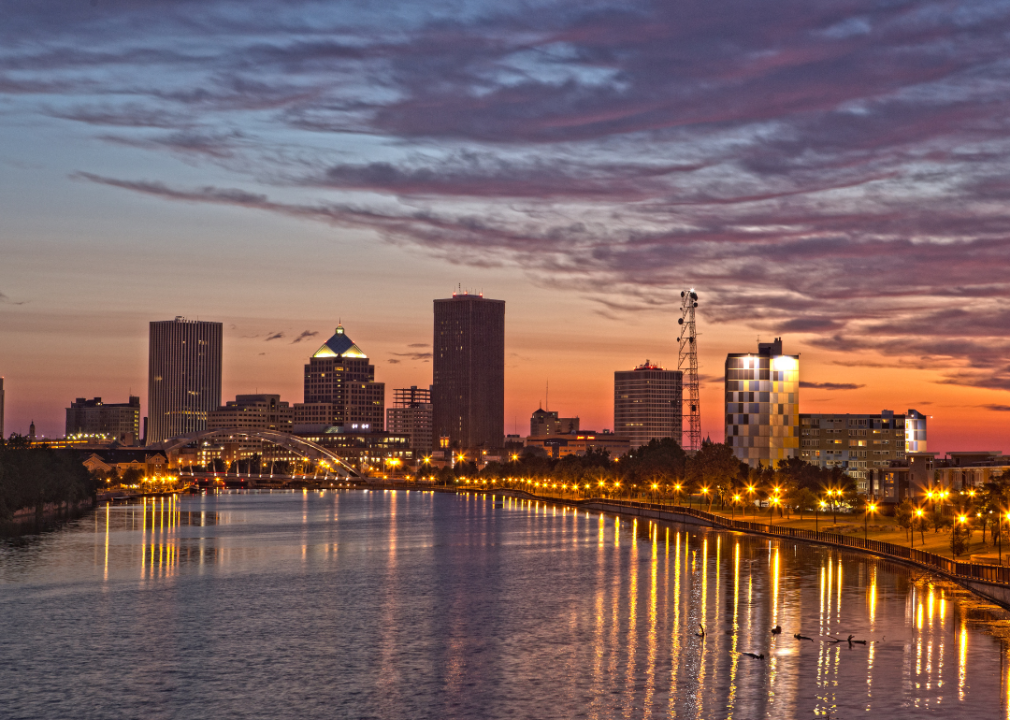
– Time of peak totality: 3:21 p.m. EDT
– Length of totality: 3 minutes, 38 seconds
– Chance of viewability: 34.3%
– Historic cloud conditions:
— Clear 5.7% of the time
— Few clouds 13.7%
— Partly cloudy 11.7%
— Mostly cloudy 20.9%
— Overcast 47.9%
Hondo, Texas
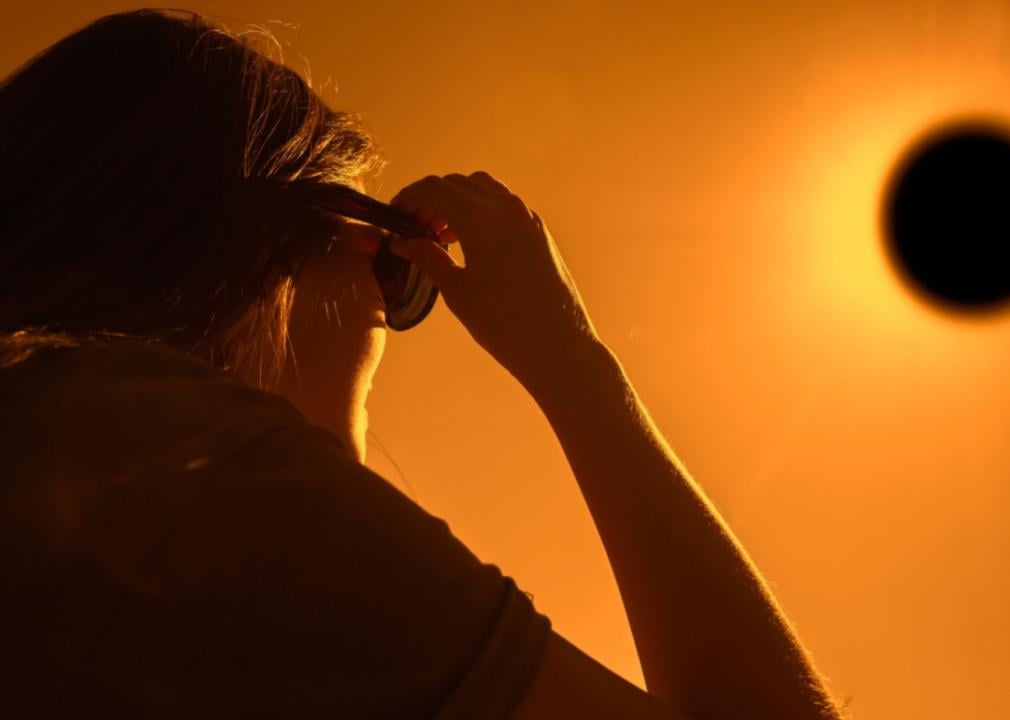
– Time of peak totality: 1:33 p.m. CDT
– Length of totality: 3 minutes, 32 seconds
– Chance of viewability: 70.3%
– Historic cloud conditions:
— Clear 53.3% of the time
— Few clouds 9.8%
— Partly cloudy 9%
— Mostly cloudy 10.4%
— Overcast 17.6%
Niagara Falls, New York
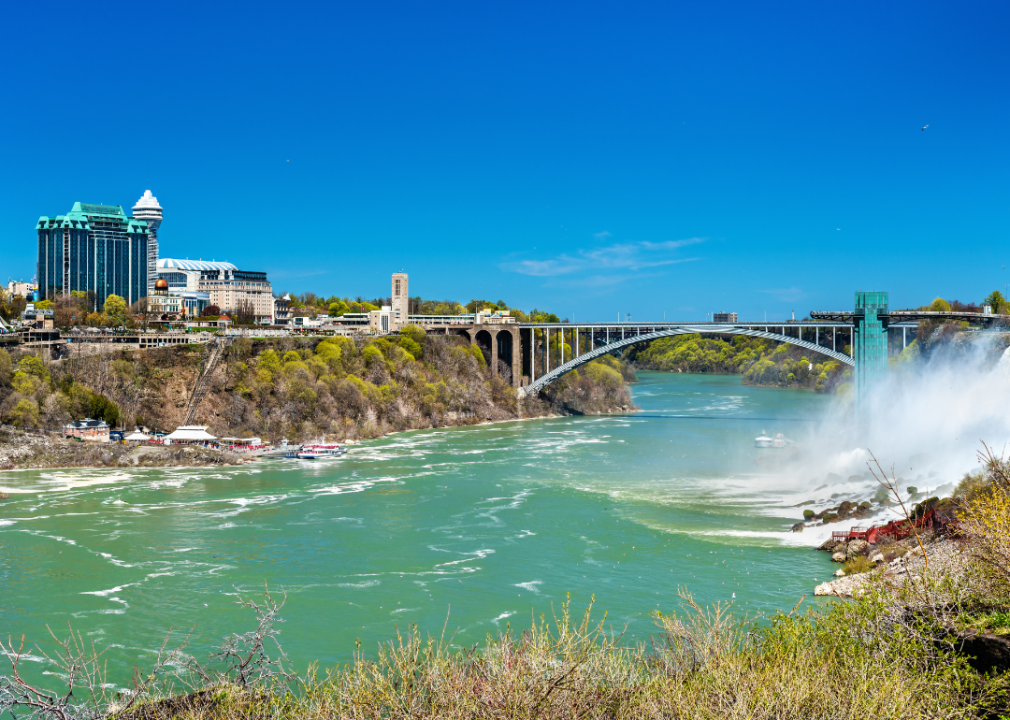
– Time of peak totality: 3:20 p.m. EDT
– Length of totality: 3 minutes, 32 seconds
– Chance of viewability: 39.2%
– Historic cloud conditions:
— Clear 8.5% of the time
— Few clouds 16.5%
— Partly cloudy 9.6%
— Mostly cloudy 26.4%
— Overcast 38.8%
Dayton, Ohio

– Time of peak totality: 3:10 p.m. EDT
– Length of totality: 3 minutes, 17 seconds
– Chance of viewability: 42.2%
– Historic cloud conditions:
— Clear 15.9% of the time
— Few clouds 11.5%
— Partly cloudy 11.9%
— Mostly cloudy 22.4%
— Overcast 38.4%
Del Rio, Texas
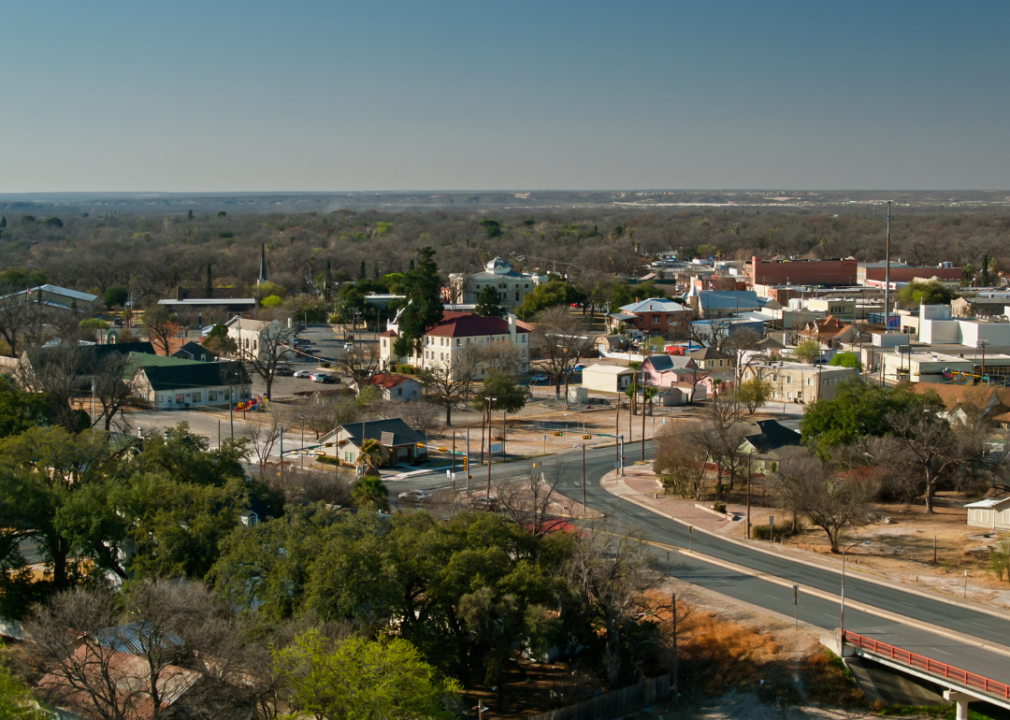
– Time of peak totality: 1:30 p.m. CDT
– Length of totality: 3 minutes, 13 seconds
– Chance of viewability: 74.1%
– Historic cloud conditions:
— Clear 64.4% of the time
— Few clouds 6.1%
— Partly cloudy 4.6%
— Mostly cloudy 6.8%
— Overcast 18.2%
Evansville, Indiana
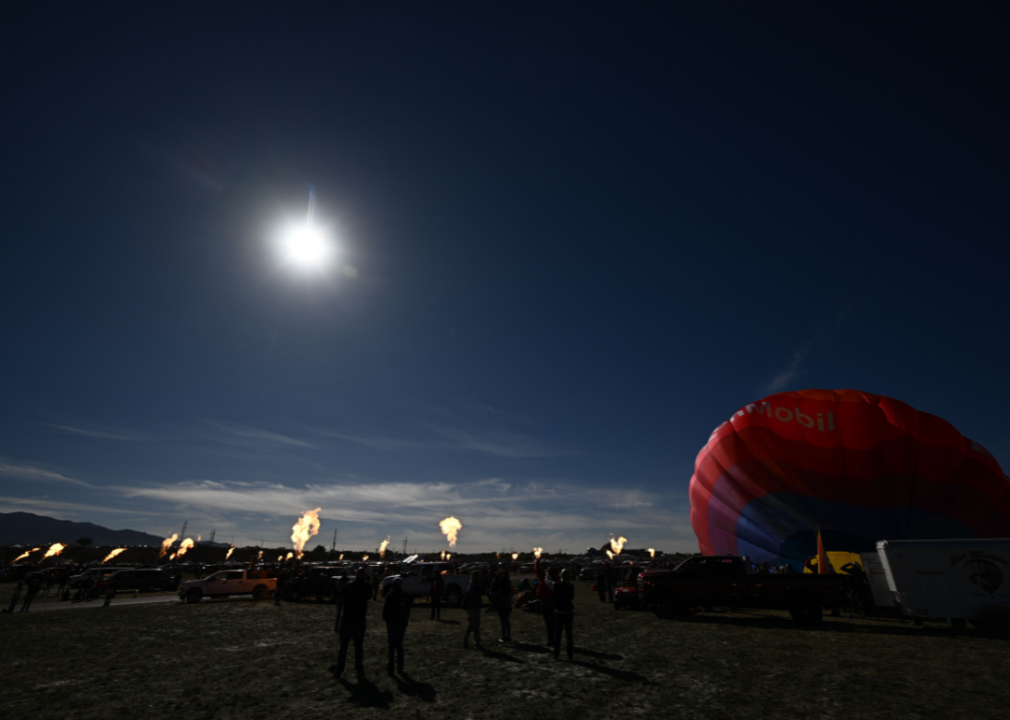
– Time of peak totality: 2:04 p.m. CDT
– Length of totality: 3 minutes, 13 seconds
– Chance of viewability: 63.9%
– Historic cloud conditions:
— Clear 48.3% of the time
— Few clouds 9.1%
— Partly cloudy 6.4%
— Mostly cloudy 11.4%
— Overcast 24.9%
Burlington, Vermont
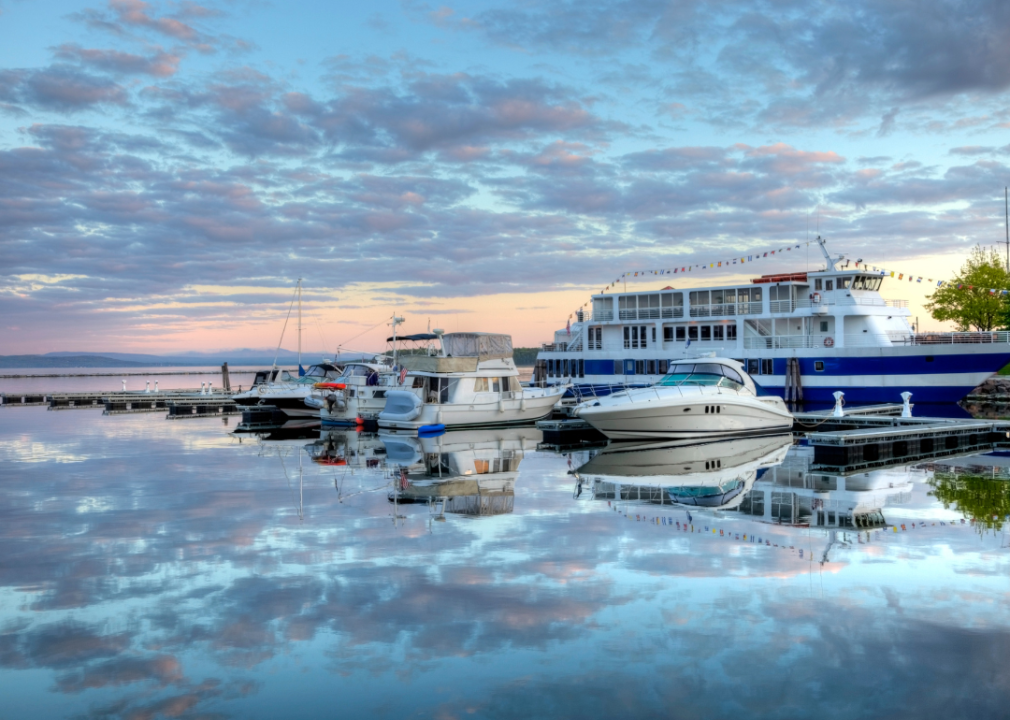
– Time of peak totality: 3:27 p.m. EDT
– Length of totality: 3 minutes, 12 seconds
– Chance of viewability: 47.5%
– Historic cloud conditions:
— Clear 20.5% of the time
— Few clouds 15.5%
— Partly cloudy 10.6%
— Mostly cloudy 17%
— Overcast 36.4%
Dallas/Fort Worth, Texas
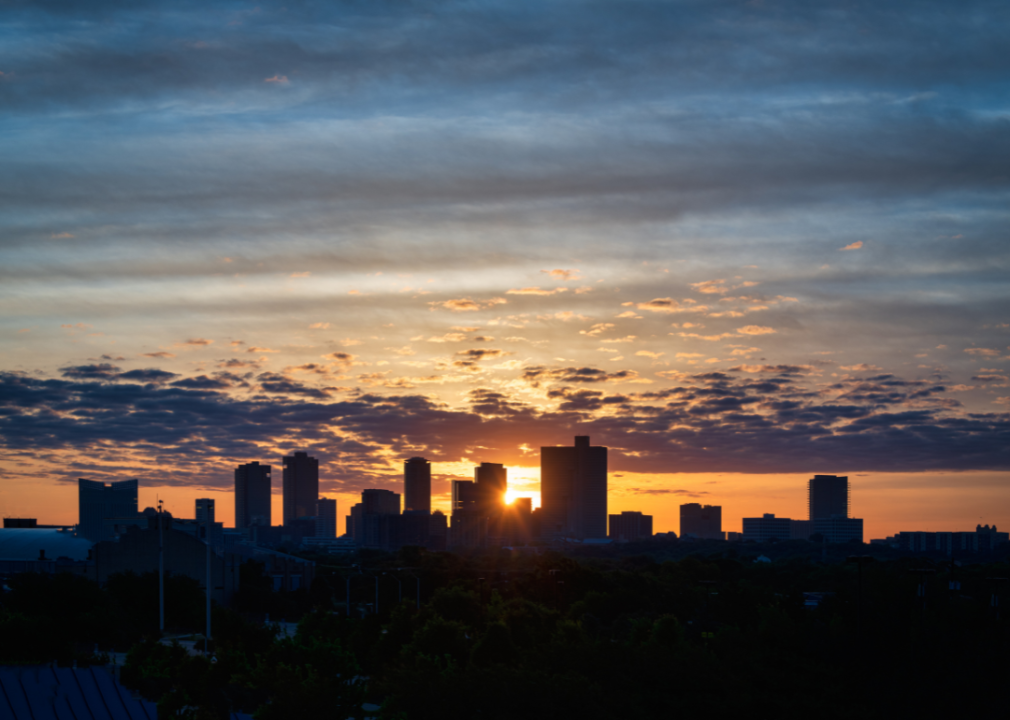
– Time of peak totality: 1:42 p.m. CDT
– Length of totality: 2 minutes, 58 seconds
– Chance of viewability: 48.1%
– Historic cloud conditions:
— Clear 19% of the time
— Few clouds 14.3%
— Partly cloudy 13.1%
— Mostly cloudy 22.9%
— Overcast 30.8%
Little Rock, Arkansas
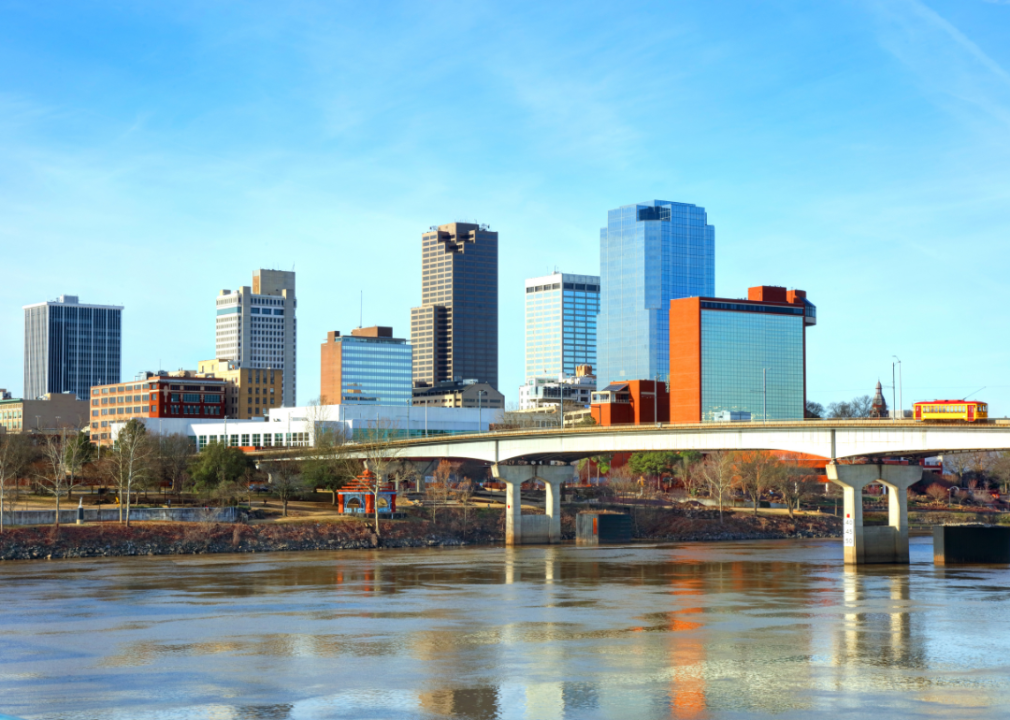
– Time of peak totality: 1:53 p.m. CDT
– Length of totality: 2 minutes, 51 seconds
– Chance of viewability: 58%
– Historic cloud conditions:
— Clear 29.5% of the time
— Few clouds 17.8%
— Partly cloudy 9.8%
— Mostly cloudy 20.8%
— Overcast 22.1%
Texarkana, Arkansas
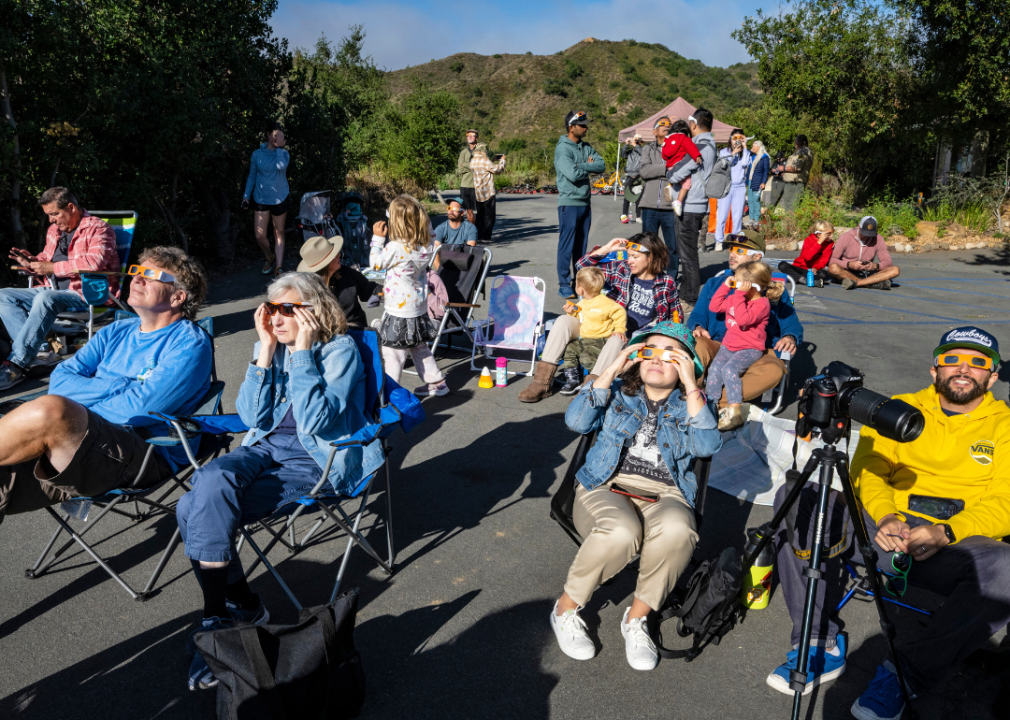
– Time of peak totality: 1:48 p.m. CDT
– Length of totality: 2 minutes, 27 seconds
– Chance of viewability: 64.7%
– Historic cloud conditions:
— Clear 50.5% of the time
— Few clouds 8.9%
— Partly cloudy 3.9%
— Mostly cloudy 12.3%
— Overcast 24.5%
Massena, New York
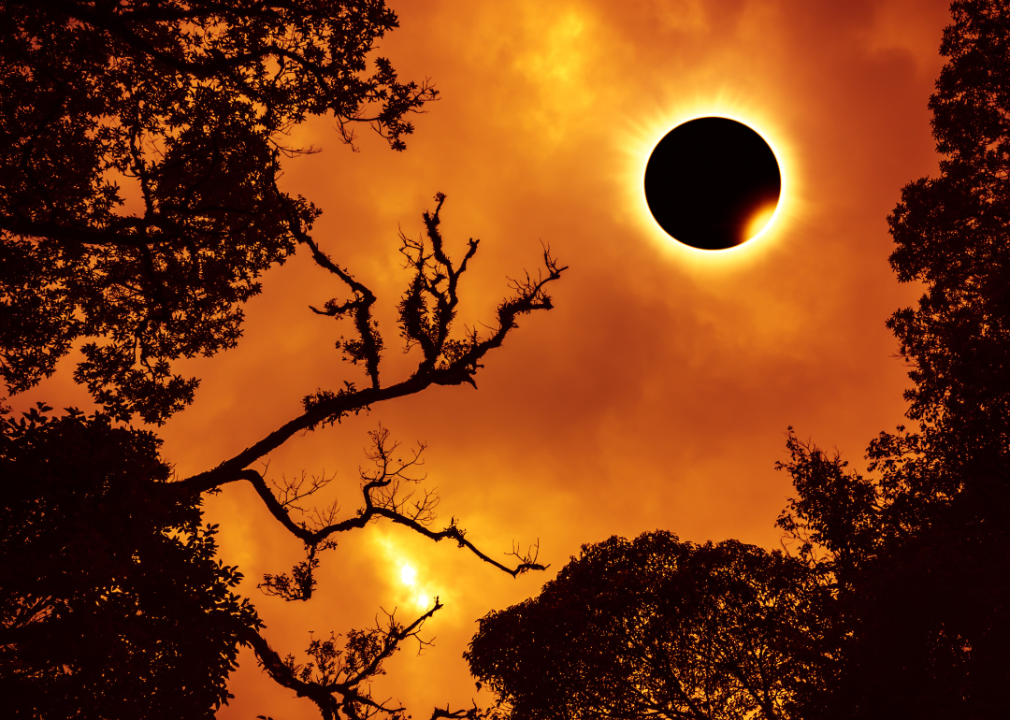
– Time of peak totality: 3:26 p.m. EDT
– Length of totality: 2 minutes, 27 seconds
– Chance of viewability: 51.9%
– Historic cloud conditions:
— Clear 34.3% of the time
— Few clouds 8.4%
— Partly cloudy 6.9%
— Mostly cloudy 14.8%
— Overcast 35.5%
Paducah, Kentucky
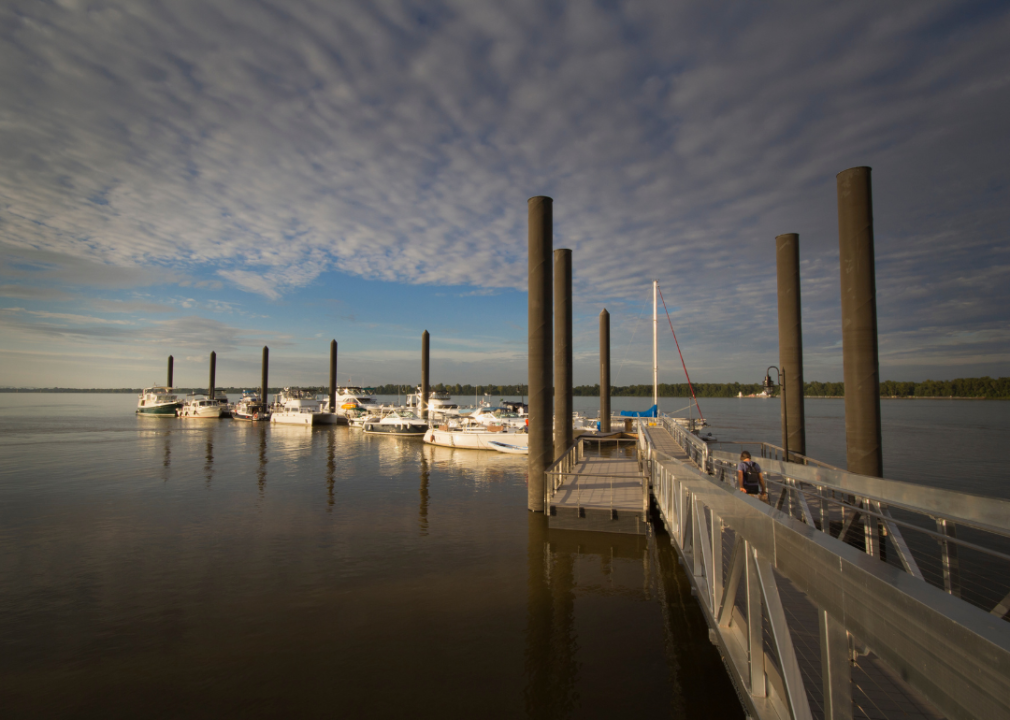
– Time of peak totality: 2:01 p.m. CDT
– Length of totality: 2 minutes, 18 seconds
– Chance of viewability: 64.5%
– Historic cloud conditions:
— Clear 49.5% of the time
— Few clouds 8.7%
— Partly cloudy 5.9%
— Mostly cloudy 11.6%
— Overcast 24.4%
Caribou, Maine

– Time of peak totality: 3:33 p.m. EDT
– Length of totality: 2 minutes, 5 seconds
– Chance of viewability: 47.2%
– Historic cloud conditions:
— Clear 33.3% of the time
— Few clouds 6.6%
— Partly cloudy 4.2%
— Mostly cloudy 11.5%
— Overcast 44.4%
Syracuse, New York

– Time of peak totality: 3:23 p.m. EDT
– Length of totality: 1 minute, 51 seconds
– Chance of viewability: 32%
– Historic cloud conditions:
— Clear 7% of the time
— Few clouds 8%
— Partly cloudy 13.7%
— Mostly cloudy 20.9%
— Overcast 50.6%
Akron/Canton, Ohio

– Time of peak totality: 3:15 p.m. EDT
– Length of totality: 1 minute, 41 seconds
– Chance of viewability: 34.3%
– Historic cloud conditions:
— Clear 6% of the time
— Few clouds 10.5%
— Partly cloudy 14.8%
— Mostly cloudy 23.1%
— Overcast 45.6%
Youngstown, Ohio

– Time of peak totality: 3:16 p.m. EDT
– Length of totality: 1 minute, 39 seconds
– Chance of viewability: 31.6%
– Historic cloud conditions:
— Clear 5.2% of the time
— Few clouds 10.6%
— Partly cloudy 11.7%
— Mostly cloudy 22.2%
— Overcast 50.3%
San Antonio

– Time of peak totality: 1:34 p.m. CDT
– Length of totality: 1 minute, 14 seconds
– Chance of viewability: 45.8%
– Historic cloud conditions:
— Clear 17.1% of the time
— Few clouds 15.3%
— Partly cloudy 10.6%
— Mostly cloudy 23.2%
— Overcast 33.7%
Toledo, Ohio
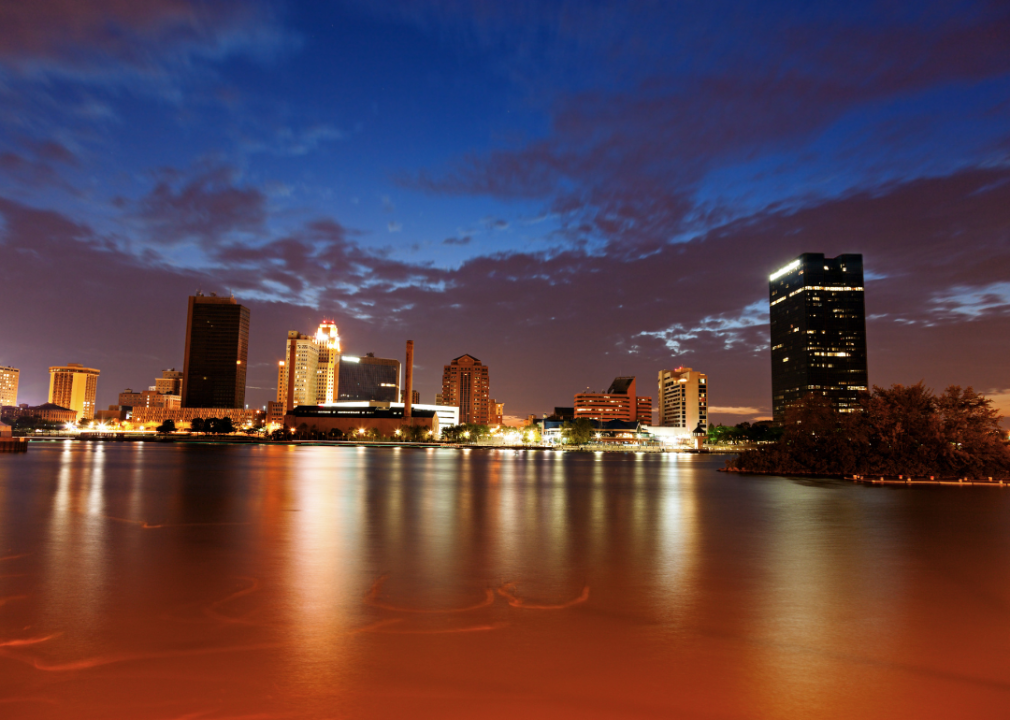
– Time of peak totality: 3:13 p.m. EDT
– Length of totality: 1 minute, 10 seconds
– Chance of viewability: 54.2%
– Historic cloud conditions:
— Clear 39.1% of the time
— Few clouds 7.8%
— Partly cloudy 5.4%
— Mostly cloudy 11.7%
— Overcast 36%
Barre/Montpelier, Vermont
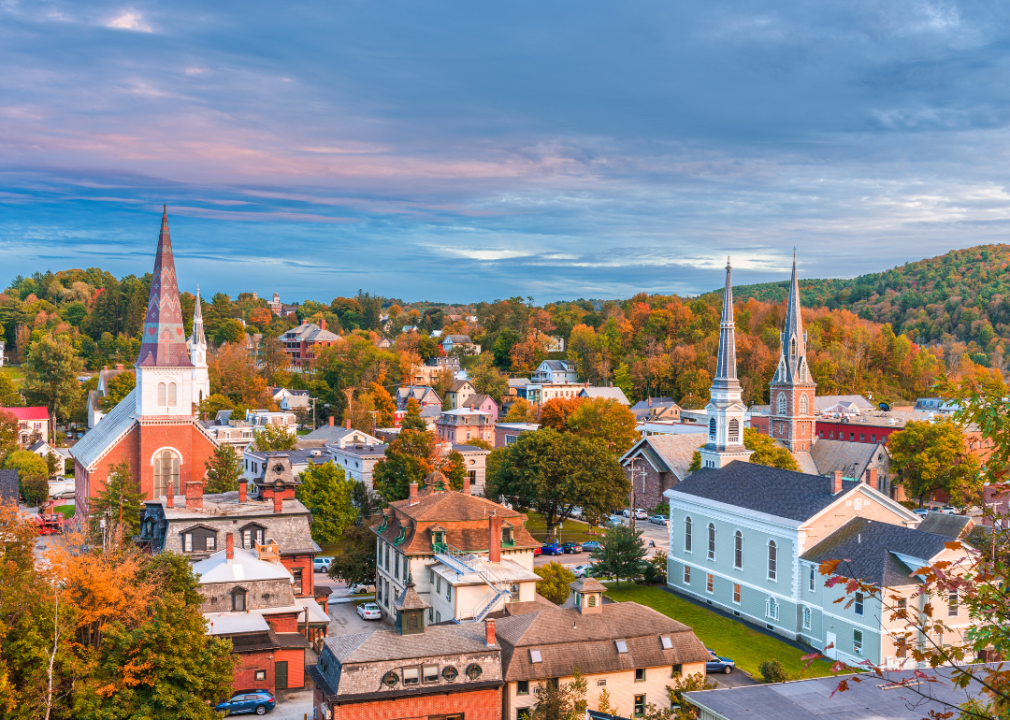
– Time of peak totality: 3:28 p.m. EDT
– Length of totality: 1 minute, 5 seconds
– Chance of viewability: 52.2%
– Historic cloud conditions:
— Clear 38% of the time
— Few clouds 8.9%
— Partly cloudy 3.1%
— Mostly cloudy 9.6%
— Overcast 40.3%
Story editing by Jaimie Etkin. Copy editing by Kristen Wegrzyn. Photo selection by Ania Antecka.
Follow Metro Parent on Instagram.
from Metro Parent https://ift.tt/jCDSYHM









0 comments:
Post a Comment